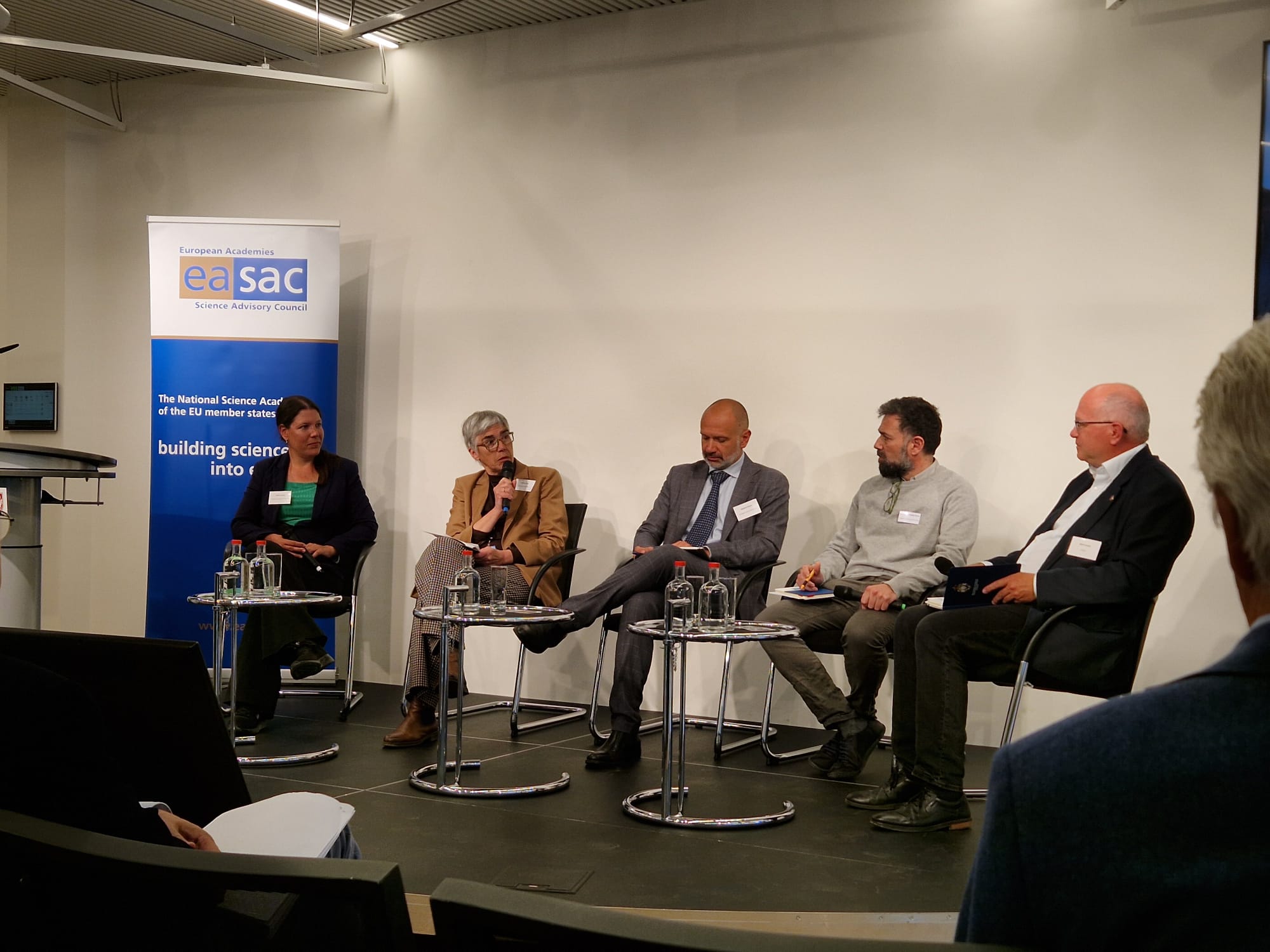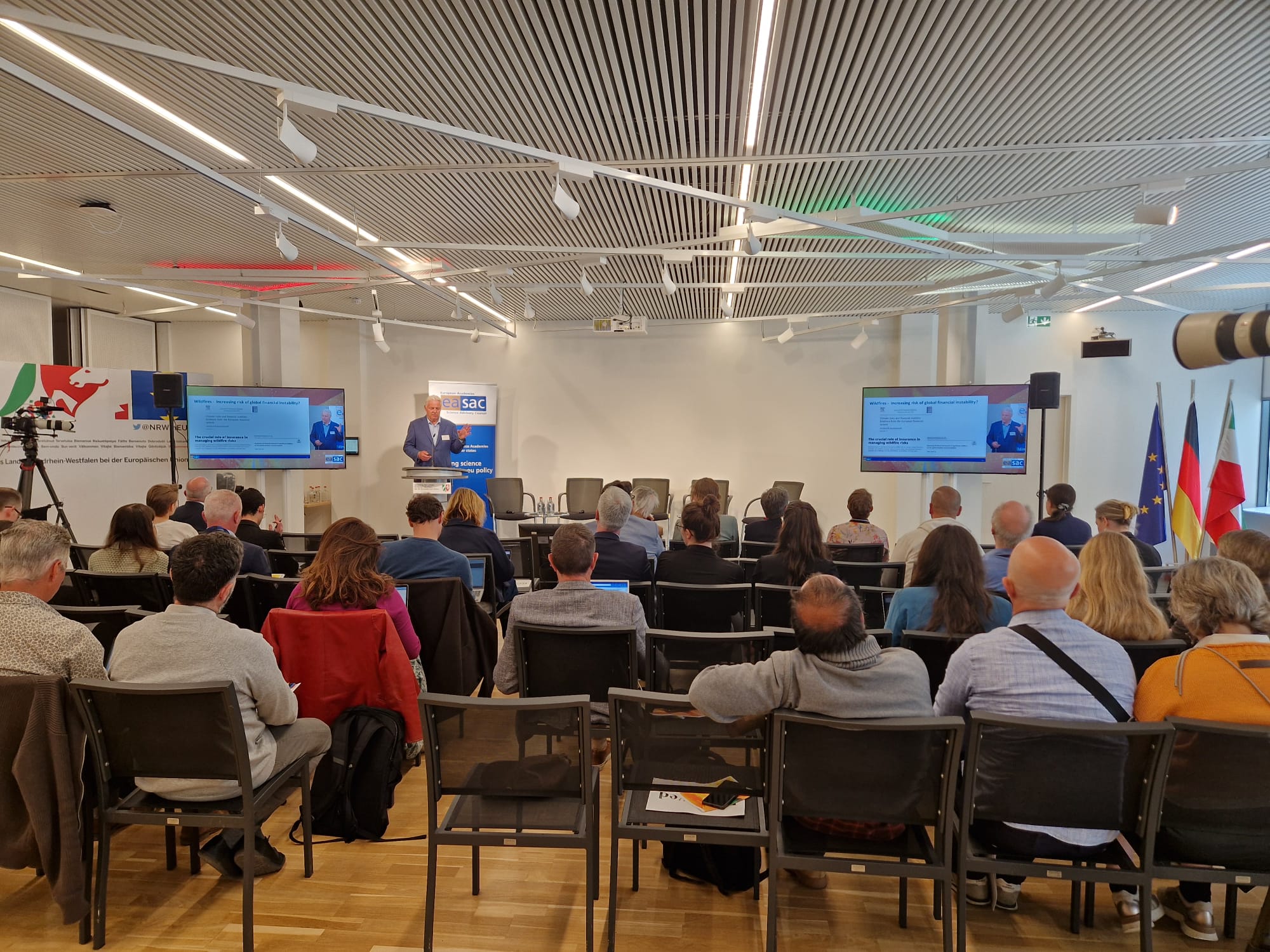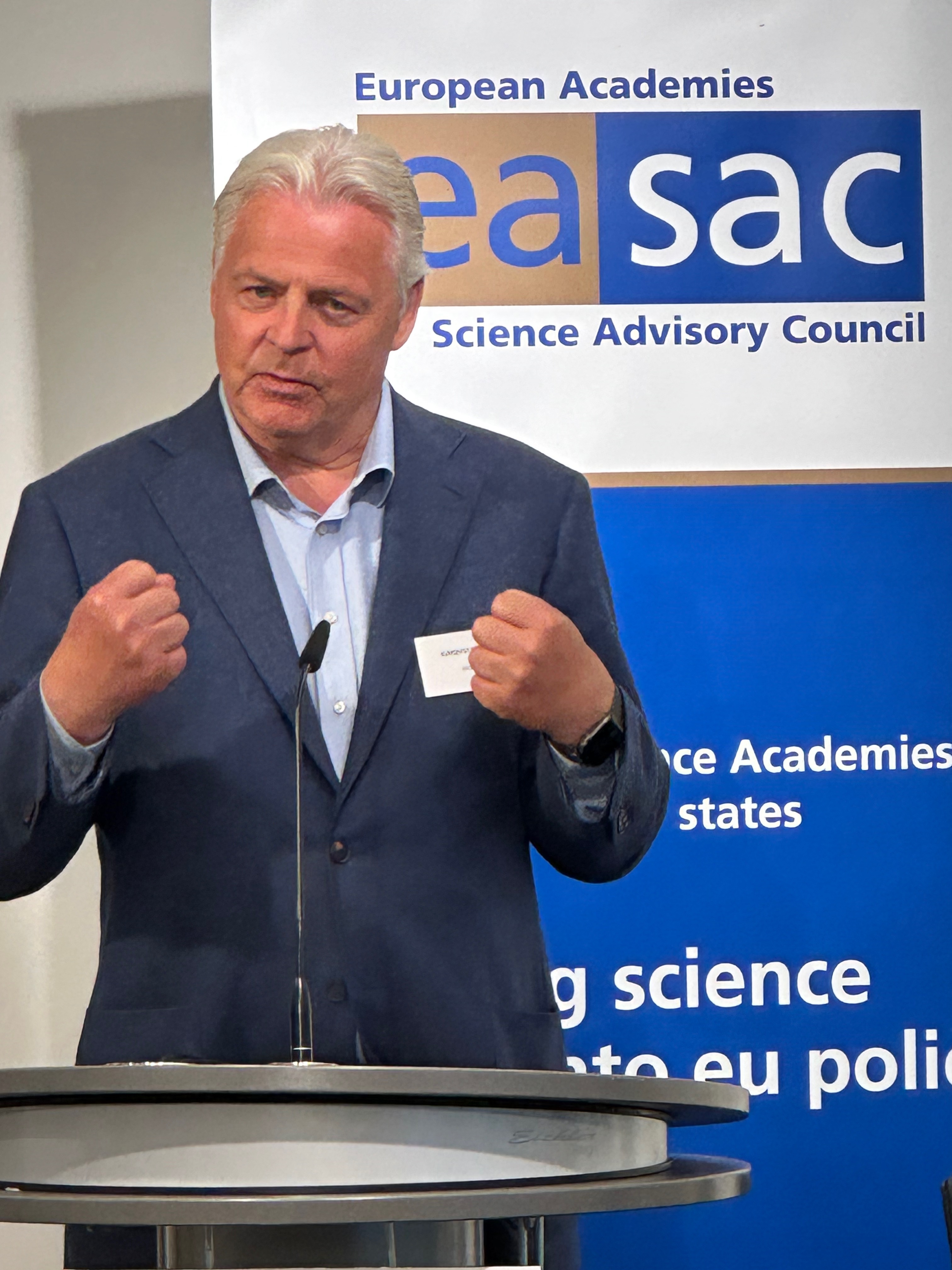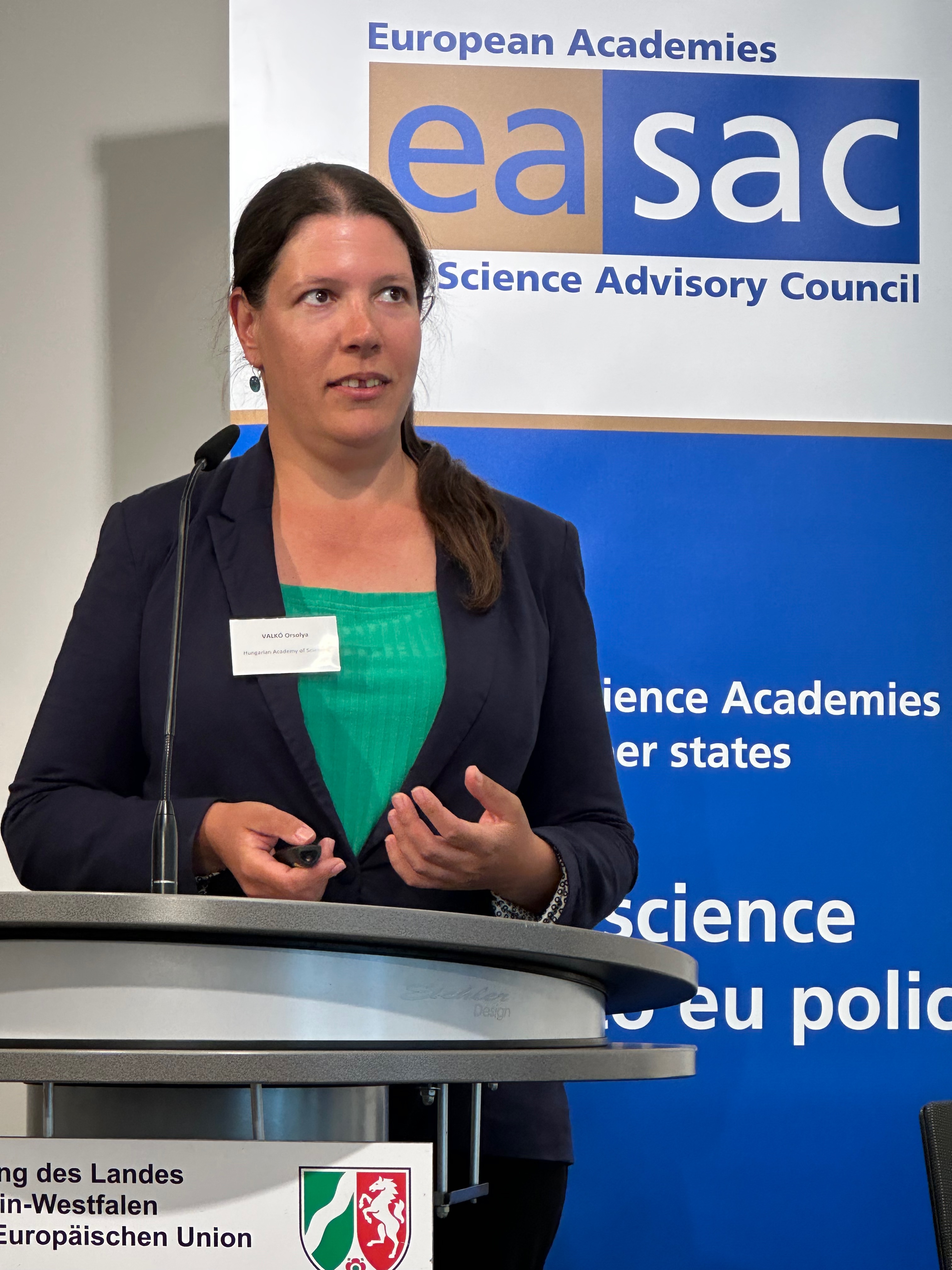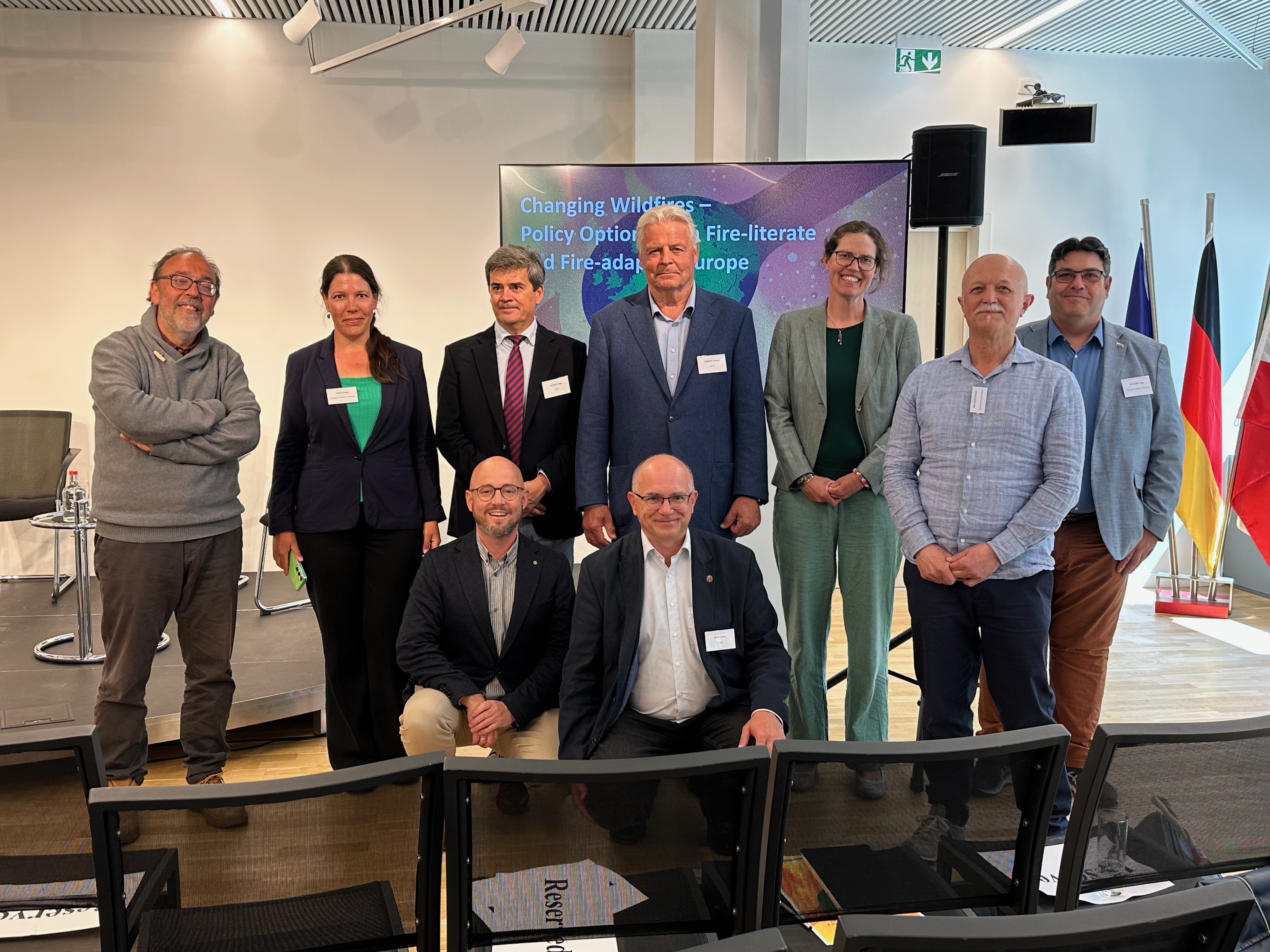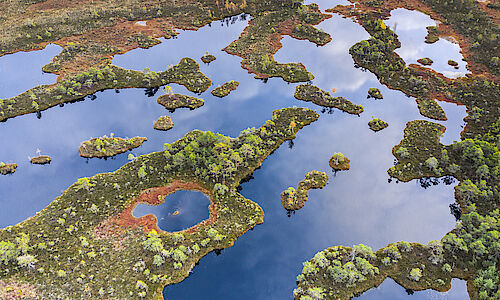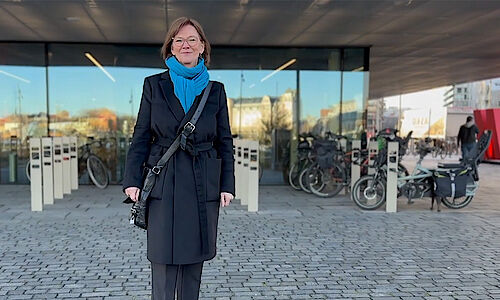News & Academies' activities
"Changing Wildfires - Policy Options for a Fire-literate and Fire-adapted Europe" Report Launched
“Europe will increasingly have to learn to live with fire and adapt society to a new challenging reality,” Elmqvist warns. “More than twice as many urban areas are at risk of fire in Europe than in North America and Asia.“ Already today, wildfires in the EU burn, on average, half a million hectares yearly - nearly twice the size of Luxembourg. Elaborated by 23 scientists nominated by their respective national science academies, the new EASAC report highlights the complex drivers behind the surge in wildfire risk. They include climate change, rural depopulation, and land-use changes. Droughts and declining summer precipitation are predicted to double fire risk by 2100. Meanwhile, the abandonment of farmland and unmanaged vegetation growth have created vast landscapes of flammable biomass.
Fire Suppression Alone is Not Sufficient
EASAC criticises current EU policies for their overwhelming focus on fire suppression and emergency response. Instead, the report advocates for an integrated EU framework for landscape fire-risk governance which should also prioritise prevention. “Suppressing fires alone is not enough. We need to address root causes, better fight climate change, invest in resilient landscapes, and engage society in living with fire,” says Dr Cathelijne Stoof, Co-Chair of EASAC’s Wildfires Working Group.
3 Key Messages and 8 Policy Options
EASAC underscores the need for enhanced institutional capacity, cross-border collaboration, and better resource-sharing among EU states. The Report sets out three key messages and eight policy options to reshape Europe’s approach to wildfires.
Report Launch event
The report was launched with an event on Monday, 19 May 2025 at the NRW Representation to the EU in Brussels, where scientists from all over Europe discussed their findings with EU policymakers and stakeholders across Europe.
Speakers & Panellists
● Hector Alfaro | Emergency Response Coordination Centre, DG ECHO, European Commission
● András Báldi (Moderator) | Chair, EASAC Environment Steering Panel
● Claudia Berchtold | Sustainable Systems Transformation Risk Reduction, Fraunhofer INT
● Alfredo Branco | Joint Research Centre
● Thomas Elmqvist | Director, EASAC Environment Programme
● Tiago Oliveira | President, Portuguese Rural Integrated Fire Management Agency (AGIF)
● Jutta Paulus | Member of the European Parliament
● Cathelijne Stoof | Co-Chair, EASAC Wildfires Working Group
● Orsolya Valkó | Co-Chair, EASAC Wildfires Working Group
